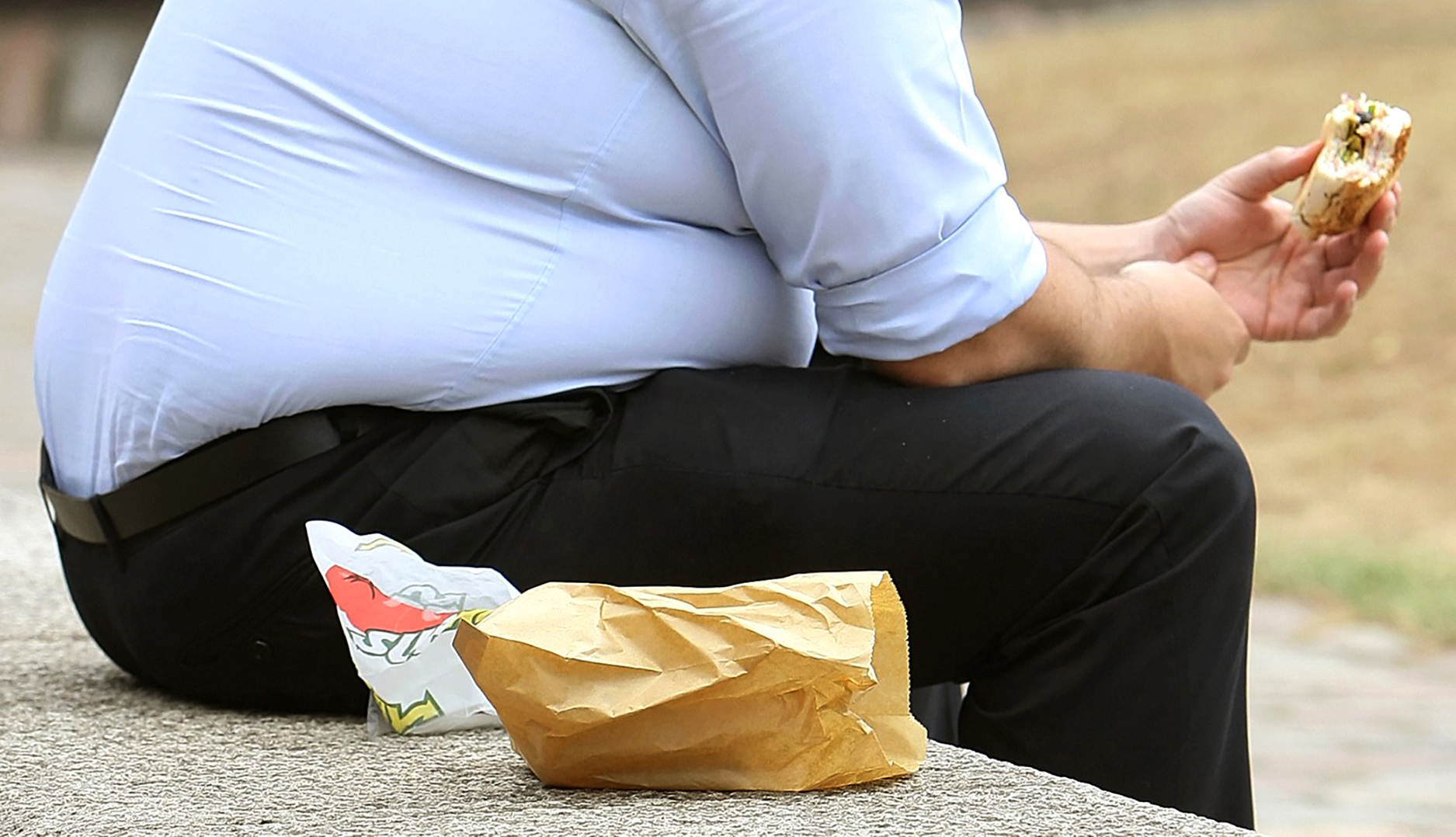In South Africa, 31% of men and 68% of women are obese. The National Health and Nutrition Survey shows a 13% obesity rate among children aged one to five – twice the global average of 6.1%.
Eating healthy food and regular exercise is the advice most overweight and obese people receive, but experts say the sharp rise in obesity rates in South Africa is highly influenced by food insecurity, inequality and food environments that offer ultra-processed, high-sugar, high-sodium food options that are often cheaper.
Monday was World Obesity Day with the theme “Obesity and Youth”. The World Health Organization said the global obesity crisis – one in eight people – reflects a food system that is failing to deliver nutritious diets for children, and health systems that fail to address obesity before individuals present with comorbidities.
“In many contexts, this situation is further exacerbated by inequality, including financial, social and structural drivers of obesity – from pervasive marketing to poor healthcare coverage – meaning that many children around the world are exposed to environments that do not promote health but instead encourage weight gain,” it said.
The day, which was first marked in 2020, calls for “a cohesive, cross-sector response to the obesity crisis”.
Communications manager at the Healthy Living Alliance Zukiswa Zimela told Daily Maverick that one of the most urgent interventions needed to curtail the explosion of obesity in South Africa is regulation of the food environment.
“We know that our modern diets are one of the biggest drivers of obesity in South Africa. Rapid urbanisation has led to a change in diets. South Africans are moving away from traditional diets to diets full of ultra-processed food. Experts have been warning us that our modern diets of calorie-dense foods, sugar-sweetened beverages and high-fat and high-carb foods are linked to obesity,” Zimela said.
South Africa suffers from high levels of hunger, food insecurity and obesity – all of which are consequences of the country’s broken food system, where South Africans have increased access to unhealthy, ultra-processed food. Ultra-processed products make up nearly half of low-income adults’ diets. Low-income adults receive, on average, 40% of their calories from ultra-processed products.
Consumers do not have a good understanding of what foods are good (or bad) for them. This is largely because the nutritional contents on the packages are too technical to be understood by non-nutritionists.
According to Dr Chengetai Dare, senior health economist at the South African Medical Research Council/Wits Centre for Health Economics and Decision Science (PRICELESS SA), the prevalence of overweight and obesity in South Africa is among the highest in sub-Saharan Africa.
“In 2016, 31% of adult males, 67% of adult females, 17% of adolescents and 13% of children under five years were either overweight or obese, posing a significant challenge to the healthcare system. In the absence of any intervention, it is estimated that 50% of South Africans will be obese by 2030,” he said.
Dare holds a BSc, an MSc and a PhD in economics. His research interests are health economics, tax policy, tax administration, public economics and behavioural (experimental) economics.
“There is overwhelming evidence linking sugar-sweetened beverages (SSBs) to the rising prevalence of obesity and its comorbidities (such as diabetes, hypertension, stroke, cardiovascular diseases, dental caries, and many forms of cancer). While all foods high in sugar hurt the body, liquid sugar in the form of SSBs is rich in energy, but poor in other nutritional content, and has a negligible impact on satiety,” he said.
Dare said that although consumption of SSBs is not the only cause of obesity, it is strongly linked to increased energy intake and weight gain in both adults and children due to the high sugar content of these drinks.
“A 330ml can of carbonated soft drink in South Africa contains an average of 40g of sugar and the same size of sweetened fruit juice approximately 45g of sugar. Drinking a single SSB daily increases the likelihood of being overweight by 27% for adults and 55% for children. Consuming one or two SSBs daily increases the risk of developing type 2 diabetes by 25%.”
 Monday was World Obesity Day, which that aims to spark a cohesive response to the obesity crisis from all sectors. (Photo: nbcnews.com/Wikipedia)
Monday was World Obesity Day, which that aims to spark a cohesive response to the obesity crisis from all sectors. (Photo: nbcnews.com/Wikipedia)
Dare said the increase in availability of and access to SSBs in lower-income groups, and the commensurate growth of this segment of consumers, is one of the major factors driving obesity in South Africa. Consumers are also victims in the market since they buy products whose nutritional values they do not know or comprehend. This is because the nutrition information of foods is packaged with jargon that is understood by very few.
Also, significant resources are invested in marketing energy-dense products partially because they are cheap to produce and highly palatable. New technologies have enabled companies to gather data on consumer preferences, which are then used to market products aggressively based on demographics. Products are often placed strategically in formal and informal convenience stores (spaza shops) to ensure the most profitable ones are at eye level and easily accessible. Apart from food, obesity has been associated with a sedentary lifestyle (physical inactivity).
Considering that overweight and obesity affects 13% of children and 17% of adolescents in South Africa, it is important for the government to have policies that protect these target groups.
“Consumers do not have a good understanding of what foods are good (or bad) for them. This is largely because the nutritional contents on the packages are too technical to be understood by non-nutritionists (or related professionals). This makes it imperative for the government to institute laws that mandate the food industry to use simplified labels to convey the nutritional content of food products,” Dare continued.
Asked what can be done by the government, food industry and individuals to fight obesity, Dare and Zimela pointed to policies that can help direct people towards healthier choices by making them cheaper and widely available.
“The government should consider raising the Health Promotion Levy (HPL) from the current 8% of the retail price to the WHO-recommended threshold of 20%. The government should also consider expanding the HPL to fruit juices. Increasing the HPL and expanding it to fruit juices will go a long way in incentivising people to reduce the intake of SSBs, as evidence has shown, while enabling the government to raise additional revenue for the fiscus,” said Dare.
A law that mandates the food industry to use simplified labels that inform consumers about the nutritional value of products would also help to create a more health-conscious consumer, he added.
“Considering that overweight and obesity affects 13% of children and 17% of adolescents in South Africa, it is important for the government to have policies that protect these target groups. For instance, prioritised interventions [targeting] a range of protective and risk factors, including issues of affordability and availability of unhealthy foods within school premises.”
Dare suggested that top priority interventions could include:
- Regulations on what kinds of foods can be sold at schools;
- Compulsory child-friendly warning labels on unhealthy foods; and
- Training school staff through workshops and discussions to improve school nutrition.
Many of these strategies are outlined in the government’s obesity prevention strategy for 2023-28.
Heala and PRICELESS are part of a large group of civil society organisations researching and advocating for health-promoting policies such as front-of-pack labelling and calling for an urgent increase in the HPL.
“The national Department of Health needs to speed up the adoption of effective front-of-package warning labels on unhealthy foods to help consumers make better choices and live healthier lives. Several studies have shown that people globally and in South Africa have trouble reading traditional nutritional labels,” Zimela said. DM




 Monday was World Obesity Day unified day of action that aims to create a cohesiveresponse to the obesity crisis from all sectors. (Photo: nbcnews.com/Wikipedia)
Monday was World Obesity Day unified day of action that aims to create a cohesiveresponse to the obesity crisis from all sectors. (Photo: nbcnews.com/Wikipedia) 